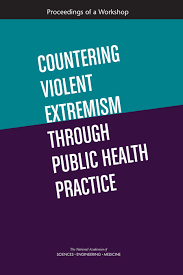
Gender and counter violent extremism: Perspectives, approaches and lessons learnt
Sven Botha (ed)
University of Johannesburg
Dr Nicole Junker (ed)
Independent scholar-practitioner
The scholarship capturing the national approaches to counter-terrorism and counterviolent
extremism (CVE) has largely been generic, thereby mostly mentioning gender
in passing. There is an emerging body of scholarship encompassing gender and CVE,
but this body of literature mostly focuses on measuring domestic policy against
international standards or international agendas that attempt to make gender a more
central point of the CVE policy space. CVE has become a globalised concept; this,
despite its exact history being unclear and therefore often contested. Additionally,
extremism and terrorism impact different genders differently. Hence, there is a need
to focus on national approaches to CVE and their relationship to gender.
The debates on the conceptualisation, application and adaptability of CVE to differing
contexts has in some cases helped to stall the progress of CVE on the international
scale. The book will adopt a CVE policy-centric approach as its method of inquiry
which is to be guided by the following questions:
• What is the current status of the gender and CVE within the greater counterterrorism
regime?
• How do different states approach the nexus between CVE and gender? In other
words, is there an acknowledgement in the policy that terrorism impacts men
and women differently?
• Do regional similarities in approach emerge, and if so, how can these trends be
used to further the multilateral approach to gender and CVE?
• If the approaches discussed in this volume have a unique national identity, what
can be done to ensure coherence on regional and international levels?
• What lessons can be learnt from the various state\country profiles contained in
the volume to facilitate good practice in the realm of gender and CVE?
• Dose CVE best describe the approach taken by the states investigated in the
volume?
• Do any unique domestic factors influence the direction a particular state takes
pertaining to gender and CVE?
• Has an inclusive conceptualisation of gender (if applicable) yielded a more
inclusive policy?
The editors welcome abstracts on national (state) approaches to CVE and gender for
consideration of no more than 300 words in length. Abstracts should be submitted to
Sven Botha by the 30th of July 2021 via email: 219119824@student.uj.ac.za.
Abstracts will be chosen based on adherence to theme, quality, originality and regional
diversity.
The book proposal for the proposed volume will be submitted to Bristol University for
consideration.
Click on the link below to download the call.
Call for chapters-Gender and counter violent extremism copy.edited-




